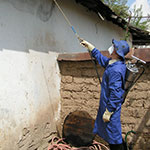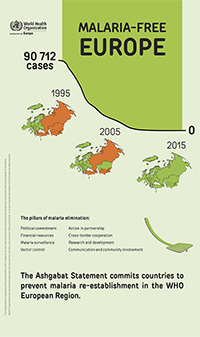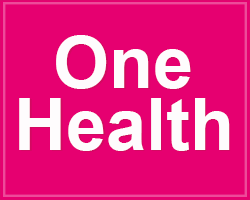Vector-borne and parasitic diseases
WHO/Europe works for malaria elimination, surveillance and control of invasive vectors and re-emerging mosquito-borne diseases, control of leishmaniasis, control and prevention of soil-transmitted helminthiases, and promotion of the use of sustainable vector-control alternatives to persistent insecticides based on the principles of integrated vector management.
Read moreTop story
Vaccination must be maintained during COVID-19 pandemic to be effectiveI want to take the opportunity of European Immunization Week to reiterate that we must not, especially now, let down our guard on immunizations. Access to vaccines for all has transformed our societies, but it is a public good that must be maintained to be effective, even in difficult times.
Publications
 Cross-border collaboration on malaria between countries of the WHO Eastern Mediterranean and European regions (2020)
More publications
Cross-border collaboration on malaria between countries of the WHO Eastern Mediterranean and European regions (2020)
More publications
Key resource
 The Ashgabat Statement
The Ashgabat Statement
A commitment to action signed by the ministers of health of ten Member States
More publicationsData and statistics
50–100 million
WHO estimate of dengue infections worldwide every year
More data and statistics






